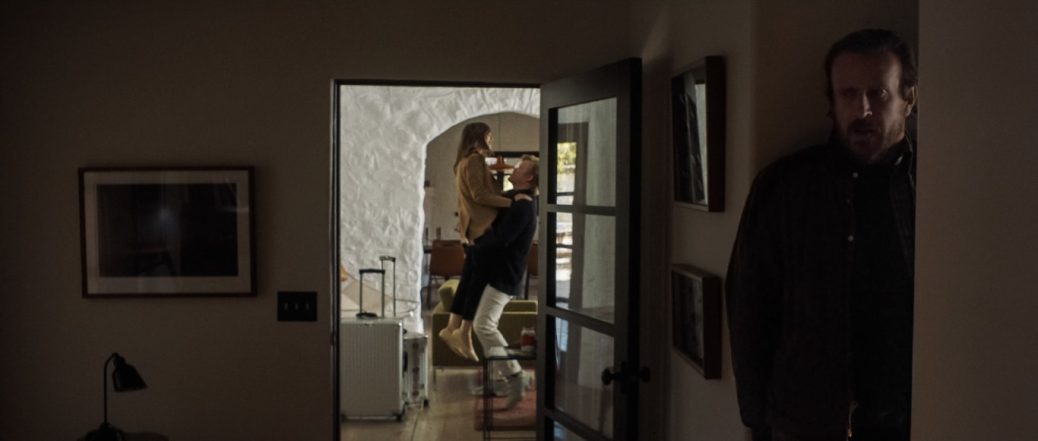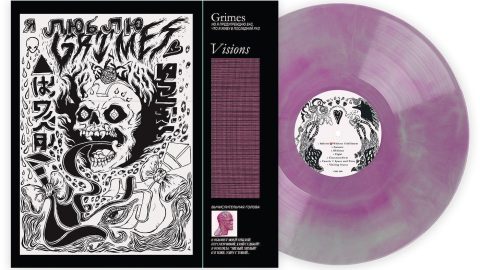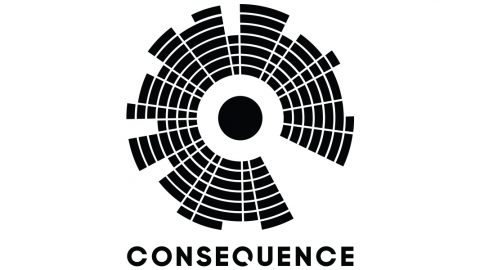The Pitch: A man (Jason Segel) breaks into a well-furnished California vacation home; he rifles through the drawers for cash and valuables, eats fruit from their lush orange grove, and pisses in their shower. But just as he’s about to leave, the couple to whom the house belongs — a snotty tech CEO (Jesse Plemons) and his wallflower wife (Lily Collins) — return home early and catch him in the act.
Rather than break out into violence, though, a curious game of negotiation begins: What does the man want? Why did he pick this particular guy’s home to rob? And just what will it take to make him go away?
This One Goes Out To…: We’re two full years into the COVID-19 pandemic now, which means we’re still dealing with the surfeit of small-scale, isolated thrillers facilitated by the restrictions and distancing of lockdown.
Related Video
Luckily for director Charlie McDowell, he’s used to this kind of exercise: his superlative 2013 supernatural dramedy The One I Love, starring Mark Duplass and Elisabeth Moss, was yet another curiously-toned thriller with a tiny cast, centered largely around a California home. (The gorgeous, minimalist Ojai home that serves as Windfall‘s setting is actually just a mile away from the one he used for that prior film.)
So the question of “how do you create during COVID?” becomes simple: Gather a few of your actor friends (or, in Collins’ case, your wife), get Se7en writer Andrew Kevin Walker on Zoom to help you hash out the script (alongside Justin Lader), and rent out a cool-looking house on which to unleash your cast.
Would that Windfall were worth all that effort, but what styles itself as a Hitchcockian tale of intrigue feels more like a hangout movie with slightly more murderous stakes.
LA Noire: To his credit, McDowell remains a stylish director, making great use of the house in which our (most of the time) three performers act out their respective mind games. DP Isiah Donté Lee makes ominous use of the hot California sun, beating down on our stressed-out triumvirate as they chase each other around orange trees, get stuffed into elegant home saunas, or bicker against the natural light in the living room.
It still looks like the crisp, digitally-refined Netflix movie it is, but McDowell’s slow pans around the space and the brassy credits font evoke Cassavetes movies from the ’70s and the noir movies of the ’40s, respectively.
But the problems lie in Walker and Lader’s script, which just doesn’t have enough meat on the bones to adequately fill out Windfall‘s 90-minute runtime. It’s a darkly funny idea, at least at first: What happens when a bumbling robber with an axe to grind encounters a wealthy couple who’d love nothing more to cooperate?
Segel’s intruder is reluctant to get aggressive, but also not eager to let his charges go, and Plemons and Collins do their best to kill with kindness. When they ask him how much money he wants, he settles on $150,000. Plemons, a literal billionaire, winces; Collins shrugs. “Yeah, you’re gonna want to get more than that.”
These bits of negotiation are fun, and come closest to carving out an interesting dynamic between our characters. But just as we never learn the names of any of the three people we’re watching for ninety minutes, we learn so little about them that everyone’s motivations become difficult to track.
We never truly learn what Segel’s deal is, apart from a mild implication that he may have personal beef with the app that made Plemons rich (one that helps companies downsize employees). Same with Collins, whom it’s implied was someone else’s secretary before falling into a loving but controlling relationship with Plemons.
Plemons makes the most with the script’s broad sketch of his character, a passive-aggressive Silicon Valley douche who wears the veneer of reasonableness to mask his utter contempt for anyone who isn’t him. Even though Segel has the gun, Plemons carries himself as if he’s the one in control of the situation, trying to bluster and trick his way to freedom.
The Three Amigos: But as the film goes on, and the plot settles into something of a kidnapping sleepover (Plemons’ assistant can’t get them the ransom until tomorrow afternoon), Windfall starts to run out of steam and glance desperately around for other things to do.
Once the perversely funny image of a kidnapper and his hostages watching The Three Amigos on an ornate projector screen wears off, the actors start to run around in circles having to engage in the same circular arguments about demands and tactics and the logistics of the kidnapping itself.
Then blood starts to flow, more out of contrivance than genuine progression, and the film sprints towards an unpredictable end seemingly out of obligation. The actors are still eating up the material, but after a while, it just kinda feels like they’re saying and doing nothing, albeit with conviction.
The Verdict: Windfall has all the ingredients for an unusual crackerjack thriller: a game trio of actors putting in solid work (and, in Segel’s case, tapping into previously unseen layers of menace), some stylish direction, and a cheeky noir aesthetic from the credits to Danny Bensi and Saunder Jurriaans’ brass-heavy score.
But the whole thing never quite builds on its mercurial concept the way it ought to; the characters are meant to be mysterious, but instead come across as mere ciphers. There are some limp grasps here at the sociopathy of wealth, and the ways that the ultra-rich don’t see people besides them as truly human, but it’s all thrown away for some cheap twists at the end that barely justify themselves.
End of the day, Windfall feels exactly like what it is: A COVID-era experiment to fill time during quarantine for a filmmaker and cast eager to work. It’s a cute experiment, and I’m sure they had fun, but the final product leaves a lot to be desired.
Where’s It Playing? Windfall breaks into your house then stays there long after it’s okay to leave on March 18th, only on Netflix.
Trailer:


</p>
<p> ” data-image-caption=”</p>
<p>Windfall (Netflix)</p>
<p> ” data-medium-file=”https://www.mnnofa.com/wp-content/uploads/2022/03/windfall-review-netflix-thriller-is-a-thin-exercise-in-hitchcockian-style-2.jpg?quality=80&w=300″ data-large-file=”https://www.mnnofa.com/wp-content/uploads/2022/03/windfall-review-netflix-thriller-is-a-thin-exercise-in-hitchcockian-style-2.jpg?quality=80&w=1024″ loading=”lazy” class=”size-large wp-image-1195995″ src=”https://www.mnnofa.com/wp-content/uploads/2022/03/windfall-review-netflix-thriller-is-a-thin-exercise-in-hitchcockian-style.jpg” alt=”Windfall (Netflix)” width=”100%” srcset=”https://www.mnnofa.com/wp-content/uploads/2022/03/windfall-review-netflix-thriller-is-a-thin-exercise-in-hitchcockian-style-2.jpg 1366w, https://www.mnnofa.com/wp-content/uploads/2022/03/windfall-review-netflix-thriller-is-a-thin-exercise-in-hitchcockian-style-2.jpg?resize=150,64 150w, https://www.mnnofa.com/wp-content/uploads/2022/03/windfall-review-netflix-thriller-is-a-thin-exercise-in-hitchcockian-style-2.jpg?resize=300,128 300w, https://www.mnnofa.com/wp-content/uploads/2022/03/windfall-review-netflix-thriller-is-a-thin-exercise-in-hitchcockian-style-2.jpg?resize=768,327 768w, https://www.mnnofa.com/wp-content/uploads/2022/03/windfall-review-netflix-thriller-is-a-thin-exercise-in-hitchcockian-style-2.jpg?resize=1024,436 1024w” sizes=”(max-width: 1024px) 100vw, 1024px”></a></p>
<p id=) Windfall (Netflix)
Windfall (Netflix)
</p>
<p> ” data-image-caption=”</p>
<p>Windfall (Netflix)</p>
<p> ” data-medium-file=”https://www.mnnofa.com/wp-content/uploads/2022/03/windfall-review-netflix-thriller-is-a-thin-exercise-in-hitchcockian-style-3.jpg?quality=80&w=300″ data-large-file=”https://www.mnnofa.com/wp-content/uploads/2022/03/windfall-review-netflix-thriller-is-a-thin-exercise-in-hitchcockian-style-3.jpg?quality=80&w=1024″ loading=”lazy” class=”size-large wp-image-1195996″ src=”https://www.mnnofa.com/wp-content/uploads/2022/03/windfall-review-netflix-thriller-is-a-thin-exercise-in-hitchcockian-style-1.jpg” alt=”Windfall (Netflix)” width=”100%” srcset=”https://www.mnnofa.com/wp-content/uploads/2022/03/windfall-review-netflix-thriller-is-a-thin-exercise-in-hitchcockian-style-3.jpg 1152w, https://www.mnnofa.com/wp-content/uploads/2022/03/windfall-review-netflix-thriller-is-a-thin-exercise-in-hitchcockian-style-3.jpg?resize=150,100 150w, https://www.mnnofa.com/wp-content/uploads/2022/03/windfall-review-netflix-thriller-is-a-thin-exercise-in-hitchcockian-style-3.jpg?resize=300,200 300w, https://www.mnnofa.com/wp-content/uploads/2022/03/windfall-review-netflix-thriller-is-a-thin-exercise-in-hitchcockian-style-3.jpg?resize=768,512 768w, https://www.mnnofa.com/wp-content/uploads/2022/03/windfall-review-netflix-thriller-is-a-thin-exercise-in-hitchcockian-style-3.jpg?resize=1024,683 1024w” sizes=”(max-width: 1024px) 100vw, 1024px”></a></p>
<p id=) Windfall (Netflix)
Windfall (Netflix)







Recent Comments